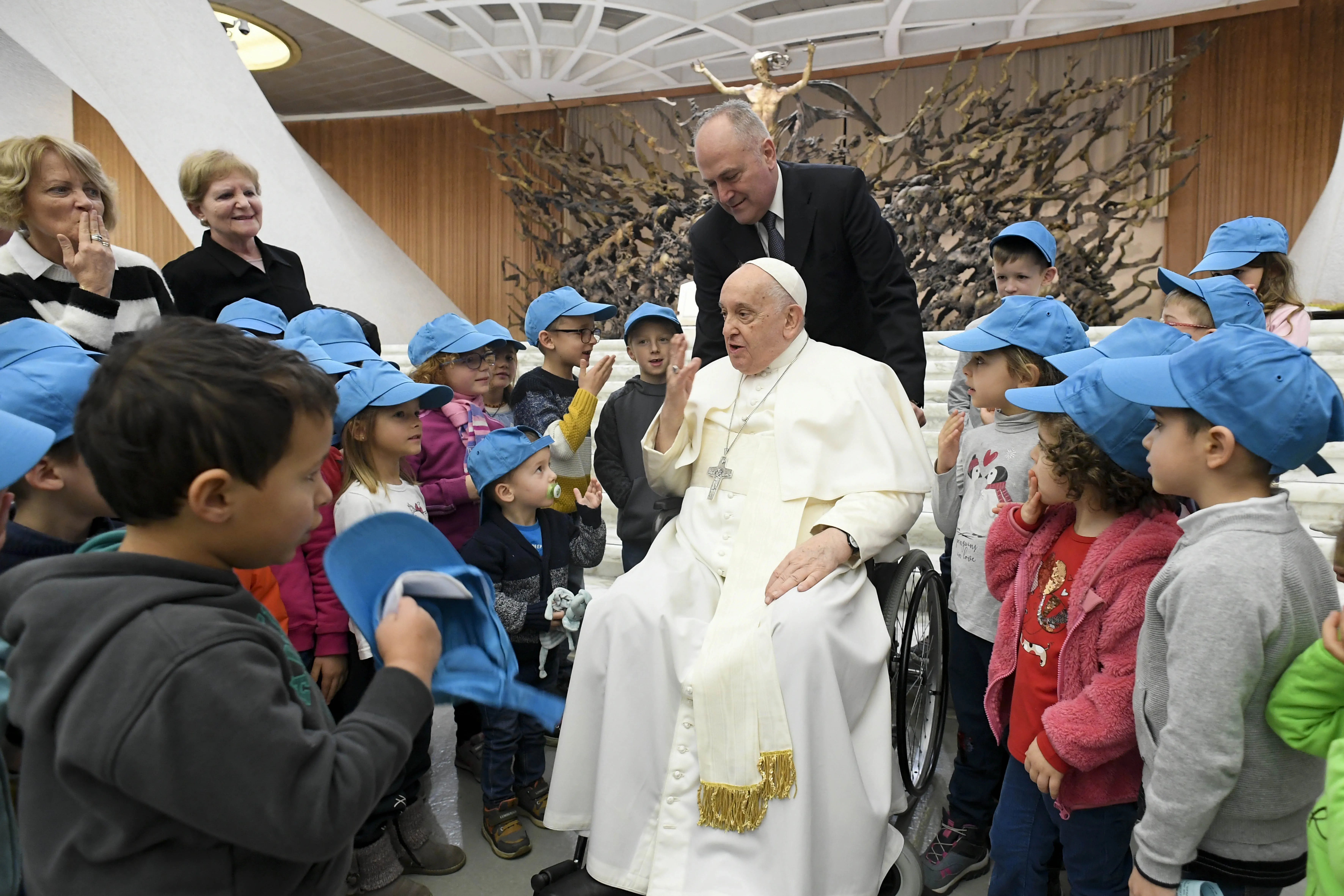
Rome Newsroom, Dec 6, 2023 / 09:22 am (CNA).
Pope Francis’ multi-week catechetical series on the essential components of the proclamation of the Gospel culminated with a fourth and final component: the Holy Spirit as the protagonist of evangelization.
Amid applause at his entrance, Pope Francis greeted the faithful present in the Paul VI Audience Hall on Wednesday, Dec. 6. The Holy Father announced that Monsignor Filippo Ciampanelli would again read the prepared remarks on his behalf — as he did during the Nov. 29 audience — with Francis noting that he was “still struggling” from the lingering effects of a flu infection. “But I’m better,” the Holy Father said.

Building off of the series’ previous themes of joy, the universality of the Gospel message, and the relevance of the Gospel for the modern world, the pope observed that the work of proclaiming the Gospel “always belongs to God.”
The Holy Father underscored that proclaiming the Gospel is never an act of self-promotion. By emulating the example of Jesus as the “first and greatest evangelizer,” we are to “cooperate with him and who leads us on by the power of his Spirit.”
But it is only possible to “imitate his style” by eschewing personal preferences and listening to an authentic call from the Spirit, the pope reflected.

“Without the Holy Spirit, all zeal is vain and falsely apostolic: It would only be our own and would not bear fruit,” the pope observed.
The pope noted that the Holy Spirit “always precedes the missionaries and makes the fruit grow.” Yet while it “comforts us a great deal” to recognize the Holy Spirit as a gift from God, the pope cautioned against the pitfall of falling into “indolence.”
“Confidence does not justify disengagement. The vitality of the seed that grows by itself does not authorize farmers to neglect the field,” Francis reflected.

The pope warned against the temptation to cloister ourselves in “safety zones” that can take the form of “the habitual repetition of things one always does, or in the alluring calls of an intimist spirituality, or even in a misunderstood sense of the centrality of the liturgy.”
“They are temptations that disguise themselves as fidelity to tradition, but often, rather than responses to the Spirit, they are reactions to personal dissatisfactions,” he noted.
The pope went on to highlight that this tendency exists not only within the framework of the Church but also is a general challenge presented by a world characterized by rapid secularization and estrangement from God.

“In this age of ours, which does not help us have a religious outlook on life, and in which the proclamation has become in various places more difficult, arduous, apparently fruitless, the temptation to desist from pastoral service may arise,” the Holy Father observed.
To counteract the tendency of falling into closed communities and the danger of living a static faith, the process of listening to the spirit and authentically proclaiming the Gospel is underscored by both “creativity and simplicity,” the pope argued.
By doing so we “return to the source and to recover the original freshness of the Gospel, new avenues arise, new paths of creativity open up, with different forms of expression, more eloquent signs and words with new meaning for today’s world,” the pope observed, quoting from his 2013 apostolic exhortation Evangelii Gaudium.
If you value the news and views Catholic World Report provides, please consider donating to support our efforts. Your contribution will help us continue to make CWR available to all readers worldwide for free, without a subscription. Thank you for your generosity!
Click here for more information on donating to CWR. Click here to sign up for our newsletter.






Living a static faith in closed communities is a grave danger. “Do your thing O Holy Spirit” is a good attitude of humble surrender to a Higher Power.